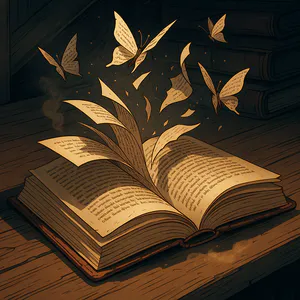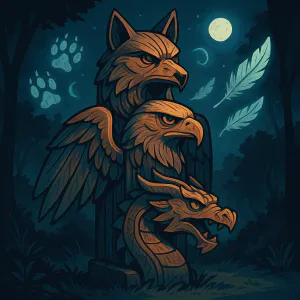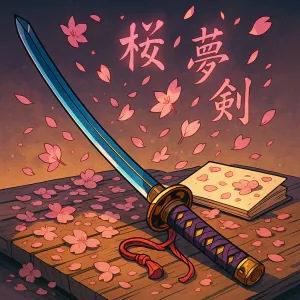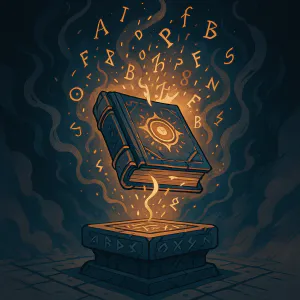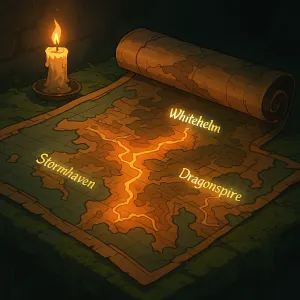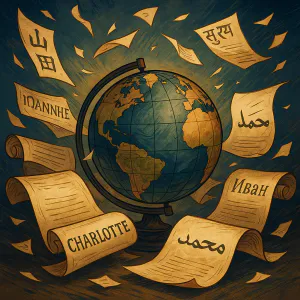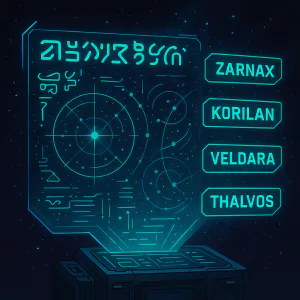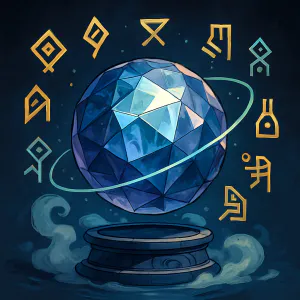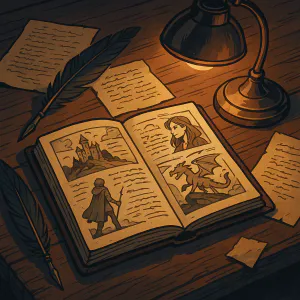- <% result.name %>
Discover all Story Shack apps

Build your writing muscle with daily practice
No AI, just you and your creativity
Jump into 20+ writing exercises—playful, reflective, and style-focused. Build the habit that transforms okay writers into great ones.
Explore more from Writing Tools
Explore all name generator categories
Skip list of categoriesFueling Your Draft
To use random paragraphs effectively, consider:
- Do you need setting, dialogue, or internal monologue?
- Should the tone be dark, hopeful, or whimsical?
- How long should each paragraph be?
- Will you adapt or expand the content?
- Could combining multiple paragraphs spark new ideas?
Random Paragraph FAQs
Answers for your writing needs:
How are paragraphs generated?
Paragraphs are randomly drawn from a curated library of prose patterns for inspiration.
Can I choose tone?
Not currently; regenerate until the mood matches your needs.
Are paragraphs original?
Yes—all content is generated for creative use without restriction.
How many can I generate?
Unlimited—click until your draft flows smoothly.
How do I copy or save?
Click the paragraph to copy it, or click the heart icon to save it to favorites.
What are good paragraphs?
There's thousands of random paragraphs in this generator. Here are some samples to start:
- There was an accident. Bobby said there was an accident. He said I was in the accident. He said I caused the accident. | © Kristina England
- To the eye of a visitor in those parts, the gloom outside threatened rain. I know, because I was a visitor in those parts, and when I looked out the window, I saw rain. | © Brian Moore
- On the shores of the swamp, two teenagers fell in love during the twilight of an autumn night. He kicked off his shoes and rolled up his pants
- she slid from her sandals and held the hem of her dress in her right hand. There were grimy jars underneath the back steps of the house. He unscrewed the lids and handed her one. She let go of the hem of her dress, and they waded into the water together. Dashing through the shallows, they caught an odd dozen of fireflies. After releasing their catch, he brushed a stray hair behind her ear and kissed her for the first time. | © Laura Konrad
- During the day my father had the appetite of an elderly woman. A single poached egg and a bit of dry toast for breakfast. Lunch, a sliced tomato with a dollop of tuna fish. Later, a monk’s dinner, boiled chicken and stringy broccoli spears. But Pop’s diet belied his physique
- he was rhino-shaped, five-foot-eight, sporting Buddha’s belly, and weighing-in at least an eighth of a ton. | © Timothy O’Leary
- The elementalist had ruled the land for decades now, keeping his subordinates clenched tightly in his iron fist. He was the greatest, and last, sorcerer in the land, he had made sure of that. As a master of the elements, fear was his tactic, magic his weapon. On some days he would be benevolent, and bless his skinny farmers with a flow of rich waters to nourish the land. On others, he would send all-destroying hurricanes, fill the fields with rocks that attacked anyone who tried to remove them or simply send an inferno that incinerated entire harvests. Yes, his people lived in fear. | © Martin Hooijmans
- Ellie retired today. She was eight and a half. She and Anna had known each other since they were both one week old. Ellie, an elephant head, was attached to the middle of a small blanket, about fifteen inches square. The blanket was pink, hemmed in green satin which Anna loved to stroke with her fingers while she sucked her thumb. Ellie covered Anna’s face when she didn’t want to be seen at all. Anna could not sleep without Ellie and carried her as she was crawling and, later, when she started to walk. Ellie traveled in the car, to restaurants, to birthday parties and Phillies games. Once the family forgot Ellie on a road trip and Anna’s dad had to turn around and pick her up or no one would be sleeping much at all. Ellie did not attend first or second grade though. She waited quietly on Anna’s bed until nightfall. | © Marian Brooks
- The forest was filled with the sounds of machines. Rough men with chainsaws and loading trucks dominated the area, cutting down the mass of pine trees that stretched out for miles. One exquisitely great tree, the one they called ‘Lone Pine’, overlooked it all with a mixture of pride and sorrow. Pride, for he was the biggest tree, the master of all, the one left alone to grow stronger each year. Sorrow, for all his companions were taken away every time winter showed its snowy head. Of course they were replaced by new ones, but after years and years the giant tree did not bother getting too close to any of them anymore. Instead, he had become an advisor and leader to the other trees, using his size and the strength of his roots to impress. One time, a lady pine had been so amazed that she had dropped all her needles in awe. Now that was a tale worth telling to the young ones! | © Martin Hooijmans
- Mud Boy splashed through the puddles and sloshed through the mud, then launched himself onto the soggy turf. The field was so rutted from dog play that he didn’t slide but stuck in place—his face submerged in two inches of water, his loins in cold mud. Mud Boy’s mother laughed nervously, for people were watching. Mud Boy smiled up with a wet clump of grass sticking out of his mouth. His mom smiled down at him. “You look like those dinos eating in our book.” | © Jon Sindell
- Early in the morning, Wallace, Meg’s husband, went up a ladder to the rooftop to remove a bird’s nest clogging the rain spout. Later he jimmied off the wooden frame hanging over the basement door, which took some time. The wood was rotting and rainwater was seeping into the basement’s walls and onto the floor. Meg stayed at her piano. Wallace passed her in her piano room as he left the house an hour later, calling out, “I’m going to Home Depot to buy caulk.” He came directly home fifteen minutes later and caulked the gaps he’d made where he’d removed the door frame. | © Lisa Weiss
- It’s amazing what one notices, when one finds out their time for noticing is coming to an end. Like you have spent your entire life walking around with your eyes shaded by a translucent curtain, and then one day, they are reopened like a shot of adrenaline straight to the heart. I wonder if we ever truly see things, even as a child. Like a new born seeing its mother’s breast for the first time. No, I don’t think we ever really care to see anything for what it truly is, until our eyes are awakened by the foresight of never seeing anything again. I think a man born without sight sees more with one simple touch of the hand then we do our entire lives. Sure, I suppose we see a lot, but do we ever stop to realize what we’re seeing? To let it sink in to our over developed alien brains? I think not. We are too busy rushing to our early graves to stop and “listen” to what we are actually seeing. | © Billy Mundane
About the creator
All idea generators and writing tools on The Story Shack are carefully crafted by storyteller and developer Martin Hooijmans. During the day I work on tech solutions. In my free hours I love diving into stories, be it reading, writing, gaming, roleplaying, you name it, I probably enjoy it. The Story Shack is my way of giving back to the global storytelling community. It's a huge creative outlet where I love bringing my ideas to life. Thanks for coming by, and if you enjoyed this tool, make sure you check out a few more!
Embed on your website
To embed this idea generator on your website, copy and paste the following code where you want the widget to appear:
<div id="story-shack-widget"></div>
<script src="https://widget.thestoryshack.com/embed.js"></script>
<script>
new StoryShackWidget('#story-shack-widget', {
generatorId: 'random-paragraph-generator',
generatorName: 'Random Paragraph Generator',
generatorUrl: 'https://thestoryshack.com/tools/random-paragraph-generator/',
language: 'en'
});
</script>
